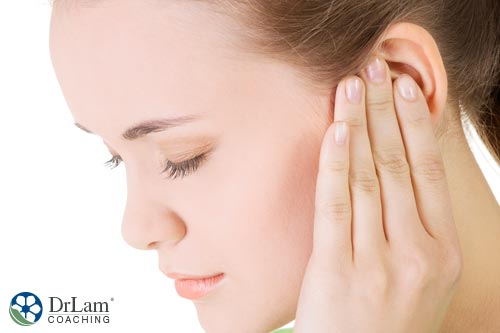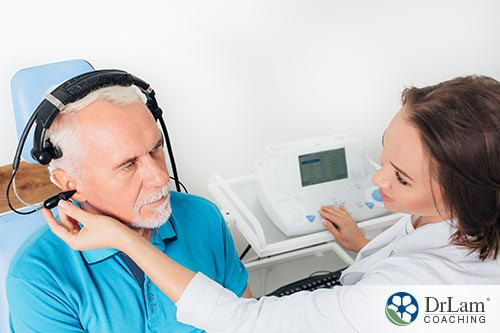 Have you ever experienced vertigo? It can be a haunting experience. Aside from the danger of falling, sudden episodes of vertigo can be exhausting, confusing, and frightening, particularly if you don’t know why they started. Many people only associate inner ear disturbances with viral or bacterial infections, but there are other conditions that can affect the ears, such as Meniere’s disease. Although not well known to the general public, this condition causes vertigo, tinnitus, and hearing loss. The cause is unknown, but as research progresses, more information becomes available on possible causes and preventative measures.
Have you ever experienced vertigo? It can be a haunting experience. Aside from the danger of falling, sudden episodes of vertigo can be exhausting, confusing, and frightening, particularly if you don’t know why they started. Many people only associate inner ear disturbances with viral or bacterial infections, but there are other conditions that can affect the ears, such as Meniere’s disease. Although not well known to the general public, this condition causes vertigo, tinnitus, and hearing loss. The cause is unknown, but as research progresses, more information becomes available on possible causes and preventative measures.
If you have sudden episodes where you feel like you are spinning, you may have what is known as Meniere's disease, a disorder that affects the inner ear in approximately 615,000 people in the United States alone. It can begin at any age, but usually starts after the age of 20, and most often occurs in people over 40.
Although it's chronic, research has discovered some factors that make it worse, and therefore, ways to help minimize symptoms Meniere's disease and lessen the long-term impact it has on the 45,000 people who are diagnosed with it each year.
 There are certain characteristics that differentiate Meniere's disease from the average inner ear infection. After an episode, signs and symptoms can improve or might disappear entirely. Episodes can occur weeks or even years apart.
There are certain characteristics that differentiate Meniere's disease from the average inner ear infection. After an episode, signs and symptoms can improve or might disappear entirely. Episodes can occur weeks or even years apart.
The following are some signs and symptoms of Meniere's disease:
It’s important to see a doctor if you experience any of these signs and symptoms of Meniere's disease. Due to the fact that these signs and symptoms can also indicate other illnesses, a proper diagnosis should be obtained immediately.
The complications and unpredictable nature of vertigo and permanent hearing loss can be difficult and life-altering. Vertigo in itself can increase the chances of losing your balance and falling, and can also increase the chances of accidents occurring while driving or operating machinery. The disease can interrupt daily life and cause emotional stress, fatigue, anxiety, and depression. In a body that is already suffering uneasiness from other chronic conditions such as adrenal fatigue, one’s quality of life can rapidly deteriorate.
At this time, the cause of Meniere's disease remains unknown. Some natural medicine practitioners suggest it could be the result of a metabolic imbalance caused by a disturbed carbohydrate metabolism, similar to that associated with hypoglycemia. A chemical imbalance can affect the entire body, including the adrenals and the NeuroEndoMetabolic (NEM) Stress Response system. Brain function can be affected as well. Adrenal Fatigue sufferers are prone to many ailments including Meniere's disease as their bodies are very sensitive, chemically imbalanced, and highly inflamed. Chemical sensitivities, among other factors, are being linked to this inner ear disturbance that has left many feeling stressed, fatigued, and uncomfortable.
No single cause for the disease has been identified. Doctors and researchers have concluded that Meniere's disease is likely the result of a combination of factors including:
Sufferers of Adrenal Fatigue Syndrome (AFS) might be more prone to experiencing chronic conditions such as Meniere's disease. AFS is associated with chronic stress, which is known to lead to excess hormones and neurotransmitters such as norepinephrine in the body causing cellular and tissue inflammation as well as high blood pressure, both of which have been linked to Meniere's disease.
 There are certain tests that can be conducted when Meniere's disease is suspected including hearing tests, balance tests, Rotary Chair testing, Electrocochleography (ECOG) tests, Auditory Brainstem Response tests, Vestibular Evoked Myogenic Potential (VEMP) assessments, and Posturography testing. They can help rule out other causes of the symptoms and more properly identify the condition.
There are certain tests that can be conducted when Meniere's disease is suspected including hearing tests, balance tests, Rotary Chair testing, Electrocochleography (ECOG) tests, Auditory Brainstem Response tests, Vestibular Evoked Myogenic Potential (VEMP) assessments, and Posturography testing. They can help rule out other causes of the symptoms and more properly identify the condition.
If you feel you have experienced a hearing loss, doctors will use a hearing test or audiometry to determine if there is a hearing problem in one or both ears. With Meniere's disease, hearing loss is usually only prevalent in one ear. In the test, headphones are used to provide a series of pitches and volumes in which the technician will determine if a tone can or can not be heard. Often tests will include similar sounds and words that you are asked to repeat.
These two tests measure the nerve and electrical activity in the inner ear to differentiate whether the hearing loss is caused by the inner ear or the nerve connecting the brain to the ear. Tests are done directly on the hearing center in the brain to pinpoint where the cause of the hearing loss is coming from.
The most common balance test used is called Electronystagmography (ENG) testing. Balance tests are conducted on individuals to test the function of the inner ear, as those who suffer from Meniere's disease have a reduced sense of balance from one of their ears. Due to the fact that the balance response in the inner ear is connected to eye movements, electrodes are placed around the eyes to record the eye movement. Hot and cold water are forced into the ear causing the balance function to work. The involuntary eye movements are then tracked, and any abnormalities indicate possible problems with the inner ear.
Although not as commonly used, the rotary chair test is often combined with ENG testing for more accurate results. The results can show if the hearing loss is caused by the ear or the brain. In the chair test, the eye movements are once again recorded as the chair is moved.
VEMP tests the vestibule of the inner ear and measures the sensitivity of the sound in the ear. Posturography Testing involves various balancing challenges conducted barefoot and wearing a safety harness that can help determine which part of the balancing system is not operating ideally.
 There are several issues that must be ruled out prior to identifying Meniere's disease. Various illnesses such as multiple sclerosis (MS) and brain tumors can cause similar symptoms. Tests such as MRI and CT scans can be ordered to rule out these conditions and look further into possible issues within the brain.
There are several issues that must be ruled out prior to identifying Meniere's disease. Various illnesses such as multiple sclerosis (MS) and brain tumors can cause similar symptoms. Tests such as MRI and CT scans can be ordered to rule out these conditions and look further into possible issues within the brain.
The most troublesome symptom of Meniere's disease is vertigo. Although there is no cure to this most uncomfortable ailment, there are methods that can offer some relief.
The supplements that have gained the most publicity for offering aid for vertigo are manganese, chromium, vitamin C, CoQ10, and niacin.
There are also some herbs available to offer help like Butcher’s Broom and Ginkgo Biloba. Butcher’s Broom helps prevent the retention of fluid, and both Butcher’s Broom and Ginkgo Biloba improve circulation.
Ginger, taken as a tea, fresh, or crystallized, is also an excellent natural remedy for nausea.
A hypoglycemic diet has also been recommended by many doctors. High-protein, low-sugar foods that do not include fried food, salt, sugar, or caffeine are suggested for at least two weeks after the start of signs and symptoms of vertigo.
There are also some exercises that may help cause vertigo symptoms to subside. One of the most common is the Brandt-Daroff exercise:
It is important to remember that natural methods for addressing vertigo work slowly. For immediate relief during acute phases, speak to your doctor about anti-dizziness and nausea medicines.
© Copyright 2012-2019 Michael Lam, M.D. All Rights Reserved.
AFS sufferers are prone to many ailments including Meniere's disease as their bodies are very sensitive, chemically imbalanced, and highly inflamed. Chemical sensitivities, among other factors, have been linked to this inner ear disturbance that has left many feeling stressed, fatigued, and uncomfortable.
